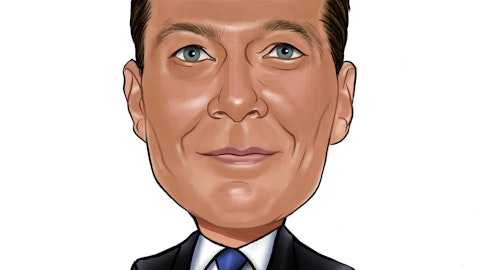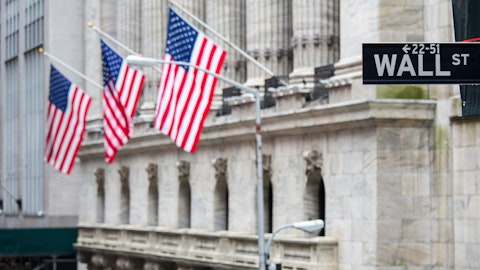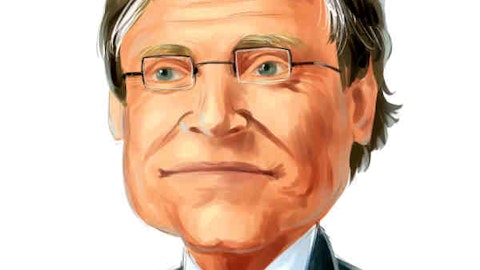Discover Financial Services (NYSE:DFS) doesn’t get no respect. That’s the message from Burr Capital LLC’s Rahul Ray, who discussed the company in the hedge fund’s recent second-quarter letter to investors.
Mr. Ray cited Discover Financial as being one of the fund’s few underperforming stocks during the second-quarter, calling it “the Rodney Dangerfield of the credit card industry.” As he pointed out, Discover Financial Services (NYSE:DFS) has nearly the same level of merchant acceptance in the U.S as its more acclaimed rivals Visa Inc (NYSE:V) and Mastercard Inc (NYSE:MA), as well as a strong balance sheet and a management team that is committed to buying back shares and rewarding shareholders (more on that later).
Despite Discover Financial’s 9% second-quarter decline, Burr Capital posted impressive gains of 10.6%, lifting its year-to-date performance to 23.9% gains, nearly 15 percentage points better than the S&P 500 during that time.
At Insider Monkey, we track insider trading and hedge fund activity to uncover actionable patterns and profit from them. We track over 700 of the most successful hedge funds ever in our database and identify only their best stock picks. Our flagship strategy has gained 44% since February 2016 and our stock picks released in the middle of February 2017 beat the market by over 5 percentage points in the three months that followed. Our latest stock picks were released in mid-May, which investors can gain access to by becoming a subscriber to Insider Monkey’s premium newsletters.
In terms of rewarding shareholders, Discover Financial Services (NYSE:DFS) recently announced that it would buff its quarterly dividend by 16.7% to $0.35 per share, after releasing the results of its Stress Test (which it passed). That boost gives the stock a yield of 1.96%, nearly triple the yield of its aforementioned rivals.
Shares certainly do look attractively-priced, as was Burr Capital’s assertion, as they’re trading at a P/E ratio of just 10.47x, while Visa and Mastercard sport P/E’s of 57.59x and 32.73x respectively. Because the stock is trading so cheaply, the company has also been buying back its shares with vigor, taking 8% of them off the market in 2016 and announcing up to $2.23 billion in share buybacks alongside the dividend hike announcement.
Follow Discover Financial Services (NYSE:DFS)
Follow Discover Financial Services (NYSE:DFS)
Receive real-time insider trading and news alerts
Of course, Discover Financial Services (NYSE:DFS) has a different business model than Visa and Mastercard, which accounts for some of the discrepancy in valuations. It provides online banking services and has a large portfolio of credit card loans, which have a far higher risk of default during economic downturns than other loans. Because of that, Discover ranked worst among 34 banks in terms of projected loan losses should there be a deep economic downturn, according to the Dodd-Frank Act Stress Test 2017: Supervisory Stress Test Methodology and Results, with projected loan losses of 13%. However, Discover has traditionally done well in choosing who to loan money to, with credit card charge-offs of about 2% between 2012 and 2016, below the industry’s average.
Discover’s weakness in 2017 is likely due to fears that rising interest rates would lead to just such a surge in credit card loan charge-offs. But while the Fed recently confirmed that there has been an uptick in credit card deliquency rates this year, which contributed to Capital One Financial Corp. (NYSE:COF) stumbling its way through the Stress Tests and reducing its buyback program over the next year, Discover otherwise passed with flying colors.
Nonetheless, Discover shares can’t seem to get no R-E-S-P-E-C-T, remaining relatively stagnant since the Stress Test results and the company’s capital plans were announced, being 15% in the red this year.
Disclosure: None






